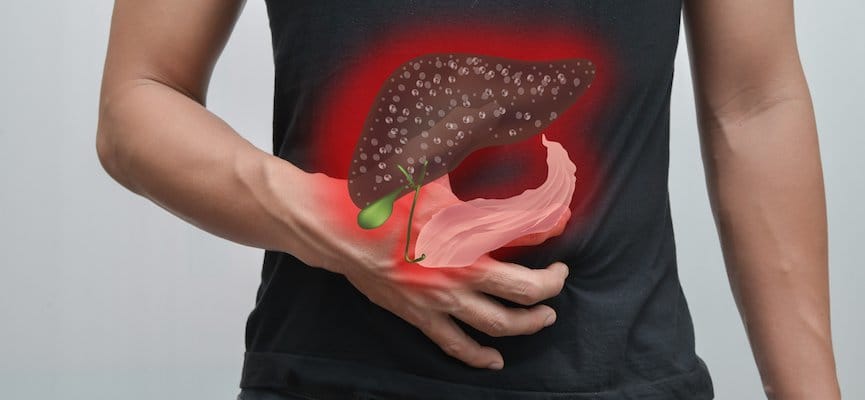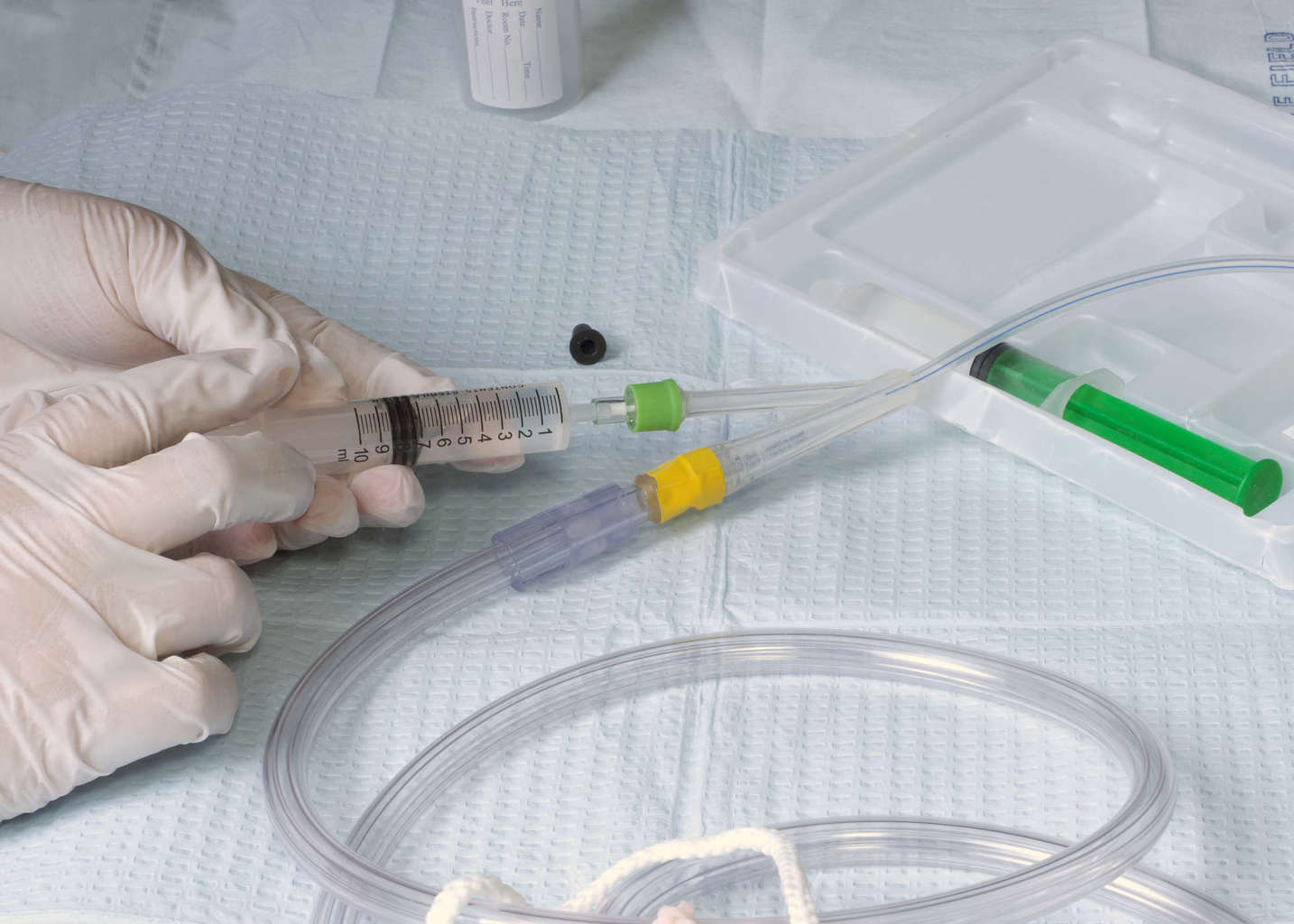Contents:
- Medical Video: Hepatitis A and B | Nucleus Health
- What is hepatitis?
- What causes hepatitis?
- Who who are at risk for hepatitis?
- What are the symptoms of hepatitis?
- What complications of hepatitis might occur?
- How is hepatitis diagnosed?
- What are the treatments for hepatitis?
- How how to treat hepatitis?
Medical Video: Hepatitis A and B | Nucleus Health
Hepatitis is one of the many major health threats in the world. Based on the results of the 2014 Ministry of Health's Basic Health Research (Riskesdas), it is estimated that 10 out of 100 Indonesians are infected with hepatitis B or C. That is, there are 28 million Indonesians infected with hepatitis B and C. Fourteen million of them have the potential to develop until the stage chronic, and 14 million cases of chronic hepatitis are at high risk for liver cancer. This makes Indonesia ranked second in ASEAN with the highest number of Hepatitis B cases.
Most people infected with hepatitis are not sure how they can get this disease. Plus, not everyone infected with hepatitis will have symptoms. Usually they realize their condition later on when the disease has developed. Most cases of hepatitis are diagnosed during routine medical examinations. The following is a complete explanation about hepatitis.
What is hepatitis?
Hepatitis is an inflammation of the liver caused by viral hepatitis. There are 5 types of hepatitis viruses: A, B, C, D, and E. The characteristics of each of these types are different, therefore the symptoms and treatment also vary.
What causes hepatitis?
Hepatitis can be viral hepatitis (viral infection) or non-viral hepatitis (alcoholic hepatitis and autoimmune hepatitis).
Viral hepatitis
This type of hepatitis is caused by a virus that enters the body. Infection can occur through the use of virus-contaminated needles (such as through injections of drugs, tattoos, body piercing, drug injections, or transfusion needles), living together or having sex with someone who is infected with hepatitis, or becoming a health worker who works with hepatitis patients as well can result in hepatitis infection. There is also the risk of hepatitis virus infection if you consume unsafe sources of water or food.
Non-viral hepatitis (alcoholic hepatitis and autoimmune hepatitis)
Alcohol can weaken the liver's work, making you more susceptible to hepatitis infection. In fact, alcohol consumption can cause many liver diseases such as alcoholic fatty liver (too much fat buildup in the liver) or cirrhosis (liver damage).
Autoimmune hepatitis occurs when the immune system attacks the liver. This normally does not occur, but can cause a decrease in liver function and cause liver damage. There are two types of autoimmune hepatitis, with type 1 autoimmune hepatitis more common than type 2 autoimmune hepatitis. People with autoimmune hepatitis can also have other autoimmune hepatitis, such as Celiac disease, rheumatoid arthritis or ulcerative colitis.
Who who are at risk for hepatitis?
Anyone can get hepatitis. But there are certain behaviors that increase your risk for this virus:
- Sharing needles with other people, whether for drug use or body modification (tattoos or piercings)
- Suffering from HIV - HIV can reduce the body's immune system, thus allowing the entry of opportunistic viruses
- Having unprotected sex (both anal and oral)
- Use drugs that damage the liver, such as acetaminophen (Tylenol and others), or methotrexate (Trexall, Rheumatrex)
- Share cutlery with people with hepatitis A and E
- Use contaminated water and food sources, either from the neighborhood or from the place you have just visited
- Perform medical procedures such as blood transfusions, chemotherapy or immune system suppressant therapy
- Transmission from mother to child
What are the symptoms of hepatitis?
Not all cases of hepatitis cause symptoms, or even if there are, the symptoms are quite vague at the initial stage in about 80% of cases. Twenty percent of other cases can show symptoms with varying levels. It is possible for you to experience symptoms immediately after being infected. Symptoms can be mild but also severe for some people, including:
- Fever
- Fatigue
- Loss of appetite
- Nausea or vomiting
- Gastric pain
- Joint or muscle pain
- Unusual or large urination
- The color of the skin and the whites of the eyes turn yellow (jaundice, a sign of liver disease)
- Itching feeling
- Mental changes, such as lack of concentration or coma
- Internal bleeding
What complications of hepatitis might occur?
If left without treatment, hepatitis can result in cirrhosis (permanent liver damage), and ultimately liver failure. If the results of your routine check show a hepatitis virus, you should get treatment immediately.
The first stage of liver damage is fibrosis, where hardening of the liver tissue (tissue damage) occurs. After a long time, fibrosis will turn into cirrhosis - severe tissue damage to the liver. It can take up to 20 to 30 years for fibrosis to develop into cirrhosis. Damaged tissue blocks the flow of blood to the liver.
According to American College of Gastroenterology, about 20% of chronic hepatitis C sufferers will develop cirrhosis. Once cirrhosis occurs, around 50% of patients will experience life-threatening complications in the next 5 to 10 years.
In addition, there is a possibility that liver cancer can occur. Hepatitis C increases the risk of liver cancer. Doctors can recommend liver ultrasound tests every 6 to 12 months. This test will show if a tumor is starting to form. The sooner it is found, liver cancer is more likely to be treated.
How is hepatitis diagnosed?
Most people who suffer from hepatitis are not aware of the disease they have, so hepatitis is often diagnosed "accidentally" during routine medical examinations. The best way to check hepatitis is with a blood test. A blood test will show the results of liver function by measuring:
- Alanineaminotransferase (ALT) / SGPT, aspartateaminotransferase (AST) / SGOT and alkalinephosphatase (ALP): these three enzymes are produced by the liver. There are too many of these enzymes which means there is a problem with your heart.
- Bilirubin: blood bilirubin levels increase in liver disease. Bilirubin is transported to the liver to be extracted. High bilirubin levels mean high levels of clotting factors and an increased risk of bleeding tendency and easy bruising.
- Albumin and total protein (TP): blood protein levels and albumin are indicative of healthy liver function.
In addition to blood tests, doctors can diagnose hepatitis through a physical examination for symptoms of hepatitis such as yellowing of the skin or eyes. A history check is needed to find out where you can get the virus.
What are the treatments for hepatitis?
The most common drugs in the treatment of hepatitis include:
- Interferon
- Antivitic drug protease inhibitor
- Nucleoside analog antivitus drug
- Polymerase inhibitors and combination drug therapy
Interferon
Interferon is a combination of antiviral drugs. Interferon reduces side effects and allows the drug to remain in the body for a longer time compared to other drugs. Interferon supplies protein to the body to fight infection and especially to help the immune system fight HCV to prevent complications. Interferon includes:
- Injection of peginterferon alfa-2a (Pegasys)
- Injection of peginterferon alfa-2b (PegIntron, Sylatron)
- Interferon alfa-2b injection (Intron A)
Anti-protease inhibitor drug
Protease inhibitors are used to prevent the spread of the virus by stopping reproduction. These drugs can be used orally. Some of the anti-protease inhibitor drugs are:
- Telaprevir (Incivek)
- Boceprevir (Victrelis)
- Paritaprevir (this is a protease inhibitor but only available in Viekira Pak, as part of the combination used to treat HCV infection)
Nucleoside analog antiviral drugs
Nucleoside analog antiviral drugs also work to prevent the formation of new viruses. This drug is also used in combination with other therapies to treat hepatitis. The most common drugs of this type are ribavirin (Copegus, Moderiba, Rebetol, Ribasphere, RibasphereRibaPak, Virazole).
Beware because ribavirin can cause birth defects in newborns if used by pregnant women and suppress growth in children. This risk can be transferred from men to their female partners in conception.
Polymerase inhibitors and combination drug therapy
Polymerase inhibitors prevent the development of hepatitis by stopping the production of viruses. This treatment includes the polymerase inhibitor sovaldi (Sofosbuvir). This drug is sometimes used in combination with ribavirin for up to 24 weeks. Doctors can also use a combination of ledipasvir and sofosbuvir (Harvoni) to treat hepatitis. These drugs must be used with food and may not be crushed.
Common side effects include:
- Nausea
- Itchy
- Insomnia
- Weakness
How how to treat hepatitis?
Hepatitis treatment usually focuses on reducing signs and symptoms. You may have to:
- Rest. Hepatitis patients feel tired and sick and don't have much energy.
- Overcoming nausea Try to divide your food into small portions and spend it slowly in one day to get enough energy. Choose high-calorie foods such as fruit juice or milk instead of water.
- Rest your heart. Your liver can have difficulty absorbing drugs and alcohol. Do not drink alcohol during hepatitis infection.
- Avoid sexual activity. Hepatitis can be transmitted through sexual activity. Avoid every sexual activity is the safest way, but you can enjoy sex with a condom.
- Wash hands thoroughly from the toilet. Hepatitis viruses can be transmitted easily from feces to hands or other items. Rub hands firmly for at least 20 seconds and rinse thoroughly. Dry hands with tissue.
- Don't prepare food for others as long as you have an active infection. You can easily transmit the infection to other people.
Hepatitis is an inflammation of the liver that is caused by a virus. Applying good hygiene, including frequent hand washing, is one of the best ways to protect yourself from hepatitis.
Hello Health Group does not provide medical advice, diagnosis or treatment.












